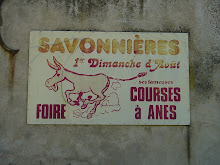Let's talk today about the homogenization of wine, using the 2005 vintage from Bordeaux as an example.
I and hundreds of other wine tradespeople are invited every year to a tasting organized by many of the producers in Bordeaux who happen to own Grand Cru vineyards. The Grand Cru designation itself in Bordeaux is based on a false premise, but that is a subject for another blog post. I guarantee I'll get to it another day.
The name of the group is The "Union des Grands Crus de Bordeaux", and their most noble and right-minded objective is to do the best they can to promote wines from the region, thereby assuring the Bordelais, particularly those in the Union, a good living. There is nothing wrong with this in the least, and we should all wish them well.
There is one thing, though, about which we should all be aware: the price of Bordeaux rarely goes down or remains the same, even though the quality (like the quality of ALL wines) fluctuates from year to year. The funniest part about the 2005 vintage though, is that by all accounts, it is one of the "best vintages ever in Bordeaux". What does this mean? Well, what it seems to mean to Robert Parker and others is that the wine is rich, forward, "big-shouldered", delicious young, has all of its elements (acid, tannin, fruit, etc...) in balance, and will age well. Sounds great, doesn't it?! Sure it does!
There's a problem though: With few exceptions, all the wines from the 2005 vintage in Bordeaux taste the same, be they from St. Julien, St. Estephe, St. Emilion, or Margaux. Normally, each of these regions has a particular taste profile that even a mildly-experienced taster is able to distinguish. In other words, for example, the comparatively feminine Margaux should taste different from the comparatively masculine St. Julien. Not in 2005. In part, this can be attributed to what we know about changes in wine-making, and, particularly prevalent in Bordeaux, the so-called Parkerization of wine, and the influence of consulting oenologist Michel Rolland. Part of the fact that the 2005 Bordeaux taste the same though, is NOT their fault, no matter how much some people would like to blame them. It was the "fault" of the good weather and the consequent ease with which producers were able to make a wine that has all of the aforementioned qualities, even if it meant abandoning the nature of the "terroir". These producers, though, could have maintained the character of their "Place" (note the capital "P"), by NOT using the techniques advocated by Rolland and others. The combination of that AND the weather was just too much. I, for one, would like to have a choice in wine, and do not always want to drink a big, rich, "hedonistic" wine. Different wines are needed for different foods and different moods, and a disservice is done to the wine consumer by trying to follow what the vintners think the market is after, rather than stick to their traditions, and, first and foremost, make the wine they like and which has been the expression of their land for generations. In this way, the French Revolution and the democratization of wine was a bad thing. At least the aristocracy and the Church did not need to appeal to the masses, and only made wine for their own enjoyment, consequently focusing all of their attention on producing the best GRAPES possible, and letting the land speak through the wine. One of the good things about the French Revolution, on the other hand, is that now one can look all over the place for good wine. That is what we should do.
What will ultimately happen for Bordeaux, of course, is that people will look elsewhere for variety when they want a Bordeaux-esque wine, but don't want to pay the price. The Languedoc and certain areas of Spain and Italy come to mind immediately. Also, people will get smart and buy other vintages of Bordeaux which better represent the specific character of each sub-region, and at a more palatable price.
That, at least, is what The Vinucator recommends.
Love and Wine.
Salud!
The Vinucator
Get Vinucated Baby!
Thank You For Reading Vinucation!
Thursday, June 5, 2008
Subscribe to:
Post Comments (Atom)




No comments:
Post a Comment